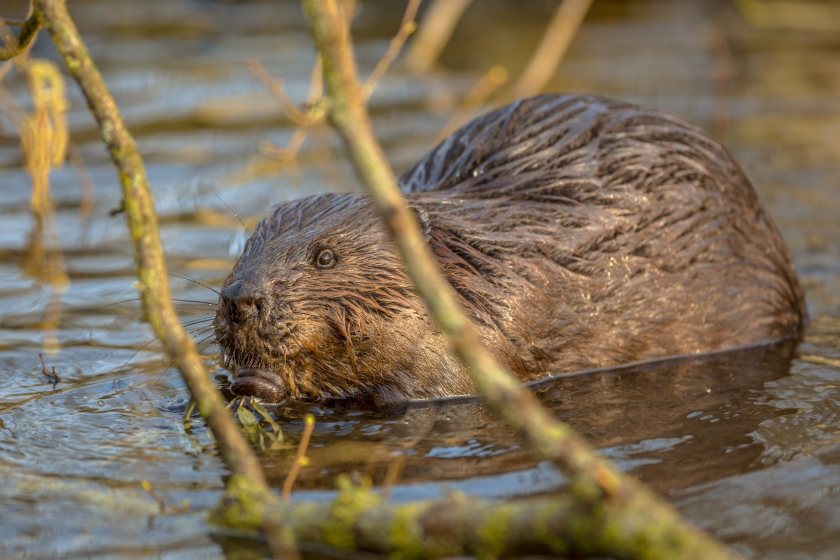Wildlife campaigners call for 'ambitious' beaver reintroduction

The new Labour government has been urged by wildlife campaigners to publish an 'ambitious reintroduction strategy' for beavers.
The Wildlife Trusts has published a new report making the case for bringing the species into rivers across England and Wales.
Beavers are known for their beneficial effects on wetlands and can play an important role in flood prevention, filtering water and boosting wildlife habitat.
However, farming groups have frequently warned that farmland could be destroyed by beavers burrowing or dam building on or near productive land.
Beaver activity can also undermine riverbanks and impede farmland drainage, making fields too waterlogged for cropping or grazing.
Three years since Defra’s beaver consultation opened and nearly two years since legislation officially recognised beavers as a native species in England, the UK government has yet to put in place steps for reintroduction.
This includes the issuing of licences for beavers to be returned to the wild in England and the publishing of plans to enable beavers to be reintroduced.
Elsewhere, in Wales, there is no legislation to protect beavers, and despite previous political indications that wild releases would be allowed, it has yet to happen.
The Wildlife Trusts’ new report explains how releasing beavers into the wild – in preference to the fenced enclosures that are currently allowed – will enable beavers to "re-join our native ecology".
Rob Stoneman, director of landscape recovery at the charity said that, across England and Wales, the reintroduction of this keystone species had stalled.
"Given the climate and nature crises, we need beavers back in the wild to give us a hand to resolve these challenges," he said.
The Wildlife Trusts has called on the UK and Welsh governments to publish a beaver reintroduction strategy and to support beaver management groups.
Farmers and land managers in the two countries must also be funded to make more space for water on their land, the report says.
Mr Stoneman added: “Nature needs beavers – but at the moment these extraordinary mammals are either living in enclosures where the benefits to communities are limited, or they’ve been released illegally and there are no management plans in place to support land managers.
"The nations’ governments must accept that beavers are here to stay and embrace the big positives they bring so that society can reap the rewards too.”








